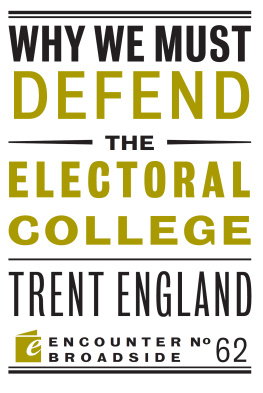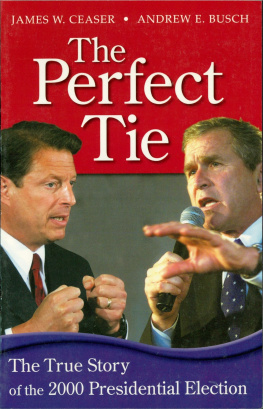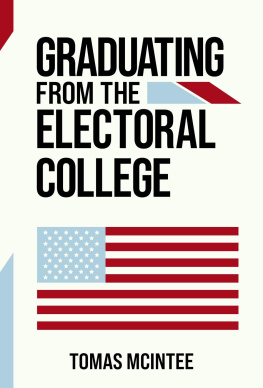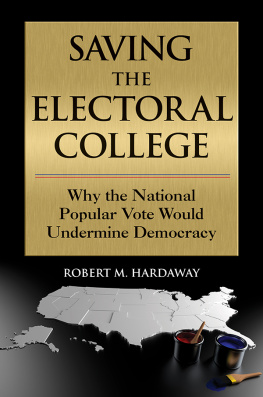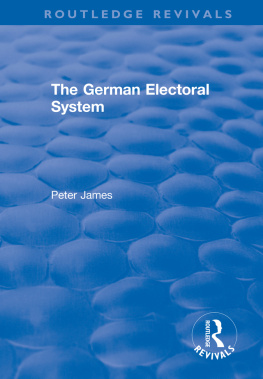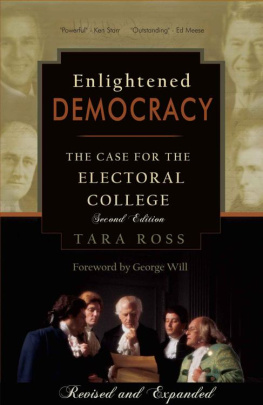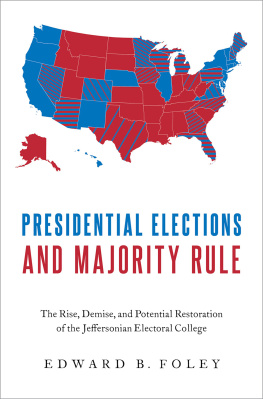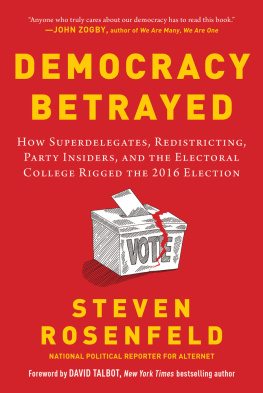T HE E LECTORAL C OLLEGE is under attack because it matters. Presidential elections determine who will direct federal agencies and appoint judges, but presidential campaigns also shape American politics. The Electoral College forces parties to build broad coalitions. It protects the power of states to run their own elections. And it contains disputes within individual states and reduces the risks from fraud.
Get rid of the Electoral College, and big cities will gain power at the expense of rural areas and small states. Political party coalitions will break down, encouraging fringe parties and spoiler candidates. In a more crowded field, a candidate could win with a small plurality. Differences among state election laws and an increased risk of fraud will compel a federal takeover of elections.
Of course, some politicians see these as features rather than bugs. Rep. Alexandria Ocasio-Cortez mocked rural America in a video against the Electoral College. Sen. Elizabeth Warren said the Electoral College stands in the way of national voting. Hundreds of proposed constitutional amendments to get rid of the Electoral College have failed in Congress, but now a campaign to hijack the Electoral College in favor of a national popular vote has gathered momentum.
All this would surprise the founders. Both the Federalist architects of the Constitution and their Anti-Federalist opponents found the Electoral College a reasonable way to select the president. In the ratification debates, the Anti-Federalists barely mentioned it at all. Alexander Hamilton, writing in The Federalist Papers, said of the Electoral College, If it be not perfect, it is at least excellent.
What happened? And how much does it matter? Electoral College opponents simply want to elect the president the same way we choose other elected officials. One person, one vote, right? Every state governor is chosen by a statewide popular vote. So why not a national popular vote for president?
Alexander Hamilton said of the Electoral College, If it be not perfect, it is at least excellent.
T HE E LECTORAL C OLLEGE AND THE C ONSTITUTION
The framers of the Constitution considered a popular vote and a parliamentary system. They rejected both and created the Electoral College. After months of intermittent debate, they were satisfied with their creation but unsure how it would work. In practice, it did work differently than many of them had expected. Rather than a body of wise men who proposed candidates for president who were then chosen by the House of Representatives, the founders themselves quickly turned the Electoral College into a two-step, democratic process.
In fact, the Electoral College almost certainly works better than the founders expected. After the minor (but important) changes made by the Twelfth Amendment in 1804, the constitutional structure of the Electoral College has remained the same for more than two centuries.
Why the Founders Created the Electoral College
Before the Constitution, the Articles of Confederation had established just a simple unicameral legislature. All the national legislative, executive, and judicial powers, such as they were, were in the hands of Congress. It was government by committee, and it was a mess. There was broad agreement that any remodel or replacement of the Articles would include an executive branch of government. What that might look like, however, was an open question.
Indeed, there was a moment of awkward silence at the Constitutional Convention when the topic first came up. Delegates had started work on Monday, May 28, and the Virginia Plan was introduced the next day. It was the first draft of what would become the new Constitution, and it called for a National Executive to be chosen by the National Legislature. The delegates debated federal powers on Wednesday and the composition of Congress on Thursday, then turned to the executive on Friday.
Right away, according to James Madisons notes, Pennsylvanias James Wilson moved that the Executive consist of a single person. When this motion received a second, there was a considerable pause until the chairman asked if the delegates were prepared to vote. Ben Franklin intervened, insisting that the gentlemen would deliver their sentiments on such a point of great importance. In the ensuing debate, a unitary executive was declared alternately the fetus of monarchy and the best safeguard against tyranny. The delegates postponed the question and moved on.
Later that same day, the Convention considered how to select the executive (or executives). Wilson spoke up again and said that he was in theory for a popular election. He wanted executive and legislative officials all elected by the people in order to make them as independent as possible of each other. Roger Sherman from Connecticut supported the Virginia Plans parliamentary system, arguing that the executive should be absolutely dependent on the legislature. Virginias George Mason thought a popular election impracticable but hoped Wilson would have time to digest it into his own form. Another delegate suggested election by the Senate alone, and then the Convention adjourned for the evening.
When they reconvened Saturday morning, Wilson had taken Masons advice. He presented a plan to create districts and hold popular elections to choose electors. These electors would then vote for the national executive. In other words, Wilson proposed an electoral college. But with many details left out, and uncertainty about the nature of the executive office, Wilsons proposal was voted down eight to two (Pennsylvania and Maryland voted in favor).
The next Monday, the Convention agreed on a unitary executive just one person would be president of the United States. The rest of the week was spent on other business, until Saturday. That morning Massachusetts delegate Elbridge Gerry proposed that state governors elect the president. This was voted down, but a theme appeared. Most delegates did not defend the Virginia Plans parliamentary model; they simply found related flaws with the alternatives. The selection process needed to produce a president of character and ability without making him beholden to other politicians.
Members of Congress would know a lot about potential presidents. That insider knowledge could be useful in choosing someone of good character and ability to run the executive branch. But giving Congress power to select presidents along with power to remove them through impeachment would make the executive branch subservient to the legislative branch. At best, the president would not be independent; at worst, the office would be awarded based on corrupt backroom deals. And if any other group of politicians chose the president, the potential for control and corruption was the same.

